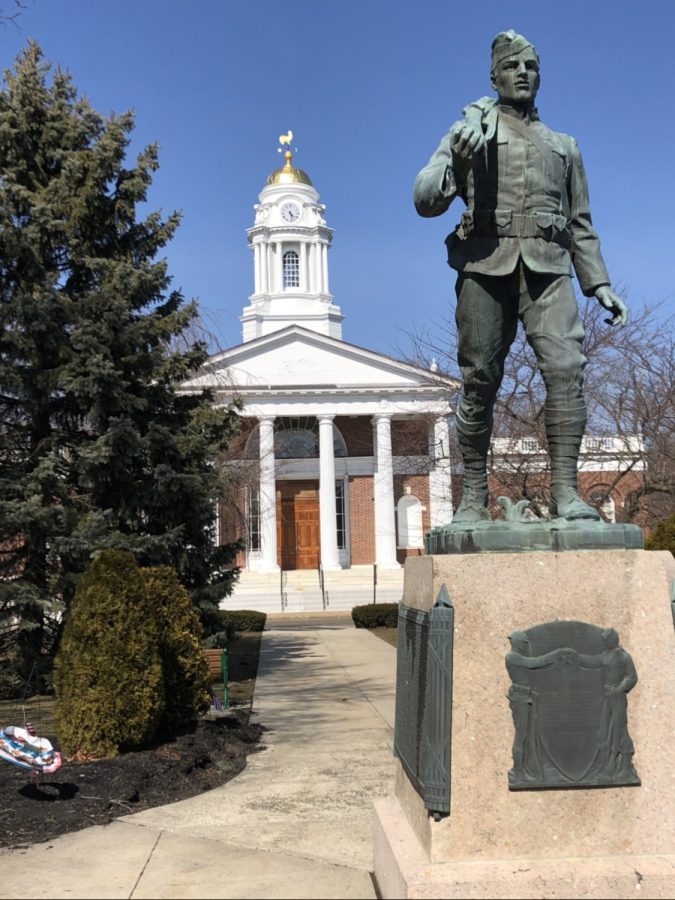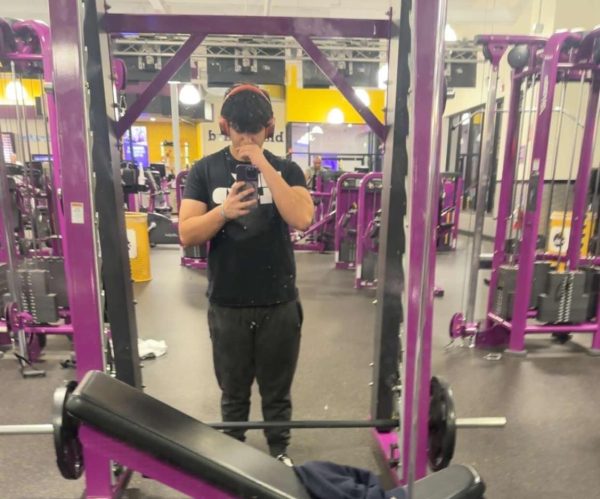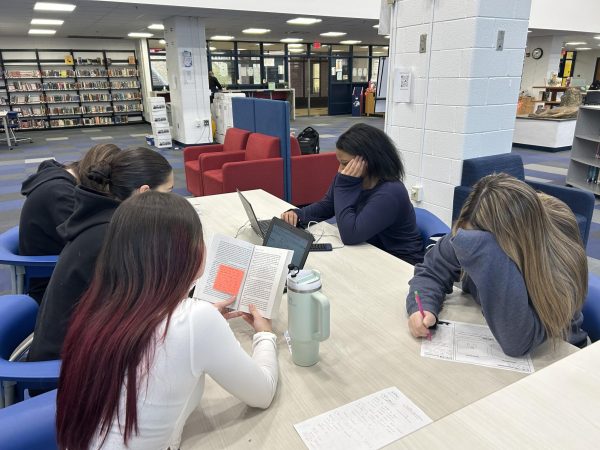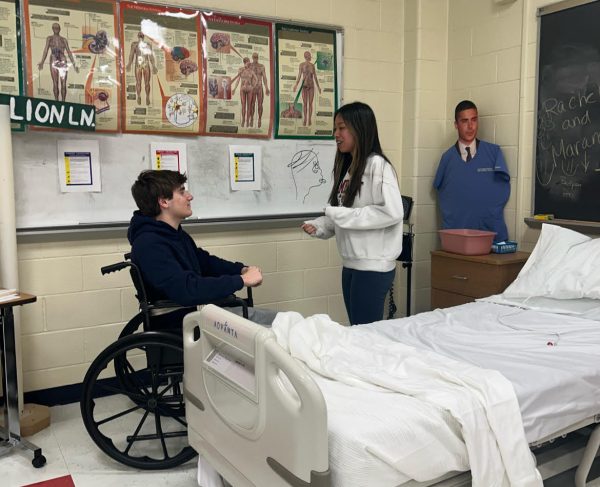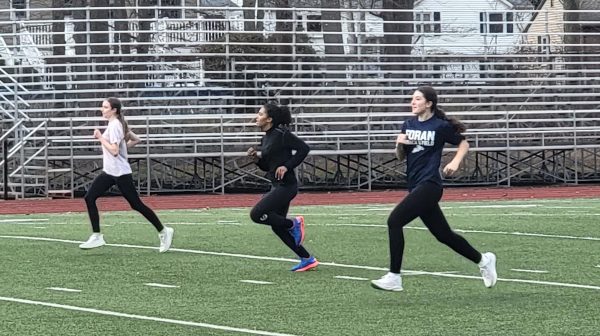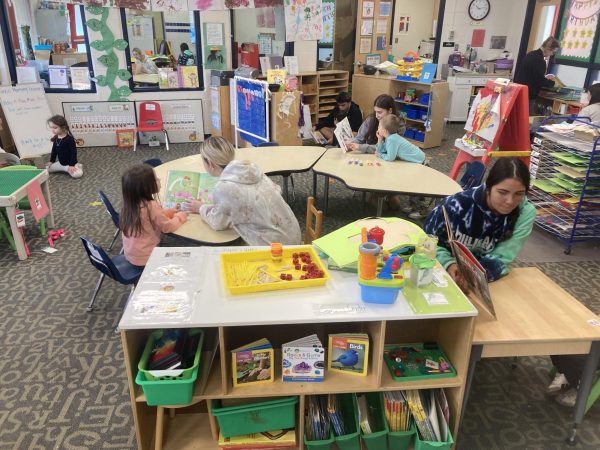Equity, Elections, and The Evolution of Voting Rights in America
Voting Today: Milford’s ballot drop-off box is located in front of City Hall.
February 15 marks the birthday of Susan B. Anthony. Born in 1820, she lived in a time when only white men could vote. Anthony, along with fellow activists, made it her mission to secure this right.
Nearly 100 years later, after her death, Congress passed the 19th Amendment officially granting women the right to vote. The century also saw the expansion of voting rights for people of color.
When the Voting Rights Act of 1965 passed, it included that “No voting qualification or prerequisite to voting, or standard, practice, or procedure shall be imposed or applied by any State or political subdivision to deny or abridge the right of any citizen of the United States to vote on account of race or color.”
This was not the case for much of history. Despite several amendments after the Civil War securing the rights of newly freed slaves, women were consistently left out of legal changes. Anthony, upset by this, made it her life’s work to ensure equity for women.
Anthony and friend Elizabeth Cady Stanton co-founded the American Equal Rights Association, and became editors of its newspaper, The Revolution, according to the National Women’s History Museum. The newspaper helped to further spread ideas surrounding equality and voting rights.
“The United States has truly become a participatory democracy for anyone who would like to participate in the process of voting,” Mr. Austin Cesare says. “Susan B. Anthony and others fought for and expanded this right to many others.”
Anthony saw the right to vote as both a privilege and an obligation. Prior to her work and the work of countless protesters and activists, the only say women had in politics was in telling their husbands who they should vote for. Furthermore, as women gained these rights, they felt empowered to make their own decisions on who to vote for and what issues were important to them.
History teacher Ms. Sarah DiGiacomo is well-versed in both the history of women in voting, as well as the impact it has today.
DiGiacomo says “As time goes on, women are voting to demand greater equality in a country that’s been under patriarchy since its inception.”
Anthony continued her work and in 1888, helped merge the largest suffrage organizations into the National American Women’s Suffrage Association, which she led until 1900. In 1906, Anthony passed away at the age of 86, leaving behind a legacy filled with strength and resilience.
Congress passed the 19th Amendment in 1919, and the next year saw the ratification of the amendment and the official end of the Women’s Suffrage movement in the United States
The desire for equality is what drove Anthony, Stanton, and everyone in the women’s suffrage movement to create the changes that can be easily taken for granted today. To help secure and honor Anthony’s legacy, the U.S. Mint released the Susan B. Anthony dollar coin. Although it was last produced in 1999, the coins are still in circulation.
Today, the issue of voting rights is currently being debated in Congress. History teacher Mr. Frank Tupka says “Right now, the big issue regarding voting rights has been voter ID laws. States are seeking to find ways to protect the integrity of the secret ballot while also trying to find ways to make voting easier.”
With voting rights legislation currently being discussed, it is a reminder as to how much voting impacts the everyday lives of Americans. The very people discussing said rights were elected into office themselves, which demonstrates how voting is a circular process, where each decision impacts the next, and so on.
English teacher Ms. Shannon Ramsey explains why voting matters to her. She says “As a female voter, I feel that it is important that 50% of the population’s opinions are heard and I am thankful for [Anthony and others] contributions.”
Today, voting is more important than ever, and it’s also more equal than ever before. Discussions around voter ID laws will continue, and each election will undoubtedly come with its own set of challenges, as they always have.
Americans can rest assured that their right to vote is safe, thanks to the work of Anthony and her fellow activists. Once eligible, everyone should register to vote, and cast their ballots each election day.
DiGiacomo adds “Whether it’s voting in person, or dropping my absentee ballot in the mailbox, I feel like I’m upholding my responsibility as an American.”
Your donation will support the student journalists of Foran High School. Your contribution will allow us to purchase equipment and cover our annual website hosting costs.

Hi! My name is Bella Mema and I’m a senior at Foran. I’m the Co-Editor-in-Chief for the Mane Street Mirror. Outside of journalism, I’m the...

Hi! My name is Sean Ayoub and I am a senior at Foran. I am excited to be the Online Editor this year. Along with being in drama club, I play trumpet...


